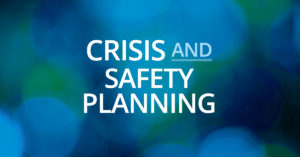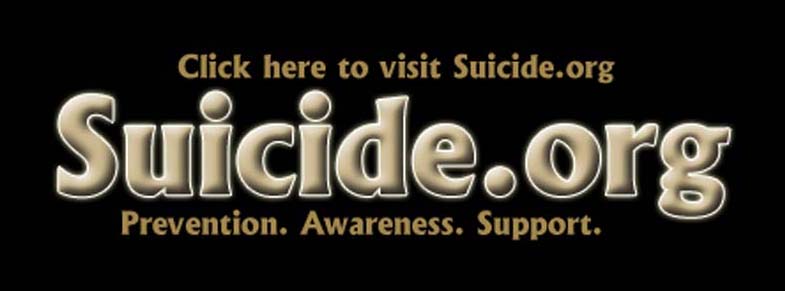DISCLAIMER: THIS IS NOT MEDICAL ADVICE! We do not employ doctors or licensed medical professionals, so we do not provide medical advice. Nothing presented here is a substitute for the advice of a DOCTOR or other licensed health care provider. Never stop, start or add medications or supplements to your health or mental health care regime without first checking for interactions or other problems, and thoroughly researching the substance. Before you employ any information here, consult your health care professional. No information here is the result of valid clinical trials.
For Family and Friends
What you might see with psych drug withdrawal
What you might see if your friend or family member is having an adverse reaction or withdrawal when abruptly or rapidly stopping an SSRI/SNRI antidepressant or other psychotropic drug.
These symptoms can also appear during a very slow taper, but it is less likely. The symptoms can last months, even years. They may come in waves and windows of varying intensity, from mild to life-threatening. This list is from Paxilprogress.org which is no longer active.
Waves and Windows of Psych Drug Withdrawal by Npath: https://www.facebook.com/notes/cymbalta-hurts-worse/waves-and-windows-in-ssri-withdrawal-by-npath/741278192694598/
Crisis and Safety Plan: http://www.healingamericanow.com/chw-crisis-and-safety-planning/
NOTE: CHW does not recommend going cold turkey, alternating days, making large or rapid decreases or bridging to another drug. The best way to minimize withdrawal and reduce the risk of developing protracted (bad, long-lasting) withdrawal is through a slow, deliberate taper with decreases of 5% or less (of the previous dose, not the original) holding at least 14 days between decreases.
- Your loved one begins to feel sick. Physical symptoms appear, for example: flu-like aches, dizziness, nightmares, heart palpitations, headaches, brain zaps. The half-life of Cymbalta is only 12 hours, so this can occur even within a day or two.
- He/she might express shame and embarrassment or anger for having ever taken the drug. They might say they feel like "a druggie."
- Anxiety and confusion set in along with an inability to focus. Your loved one starts to act and look a little lost or muddled. They might worry that they're "crazy." They worry they're going to hurt you by making you "go through this" with them. You can see an inability to connect thought patterns or thoughts with emotions as the abstract thinking process is affected.
- Their dreams become more vivid and often disturbing - if they're able to sleep at all. Insomnia can be brutal.
- Manic and psychotic episodes can come and go at random intervals, triggered in part by severe insomnia. They may begin to have visual and auditory hallucinations. Perceptions of people, timeframes and events can become skewed and completely inaccurate.
- Antidepressant- or withdrawal-induced homicidal, suicidal and violent thoughts and actions can develop, becoming overwhelming and very specific, even to someone who has never had these tendencies. They may have dangerous impulses to drive into oncoming traffic or objects, jump in front of trains or run out in front of cars. Be on guard. They may not be capable of fighting off these intense, specific thoughts and may not feel safe if left alone. This is not just a way to get attention. These thoughts are not theirs and are very dangerous and life-threatening.
- Aggression, irritability, rage, anxiety may pop out of nowhere. Emotions reappear in sudden, intense bursts and rollercoaster the person between uncontrollable crying fits and anger. They may burst out laughing, blow up in anger or start crying for no apparent reason. You might see them sob for hours then turn and want to rip someone's head off.
- Gaps in memory - very often memories that were formed while taking the SSRI or during withdrawal are the ones that seem to go. You might mention the movie you saw with this person the day before and be told you've gone out of your mind!
- Their cognitive abilities and memory becomes impaired to the point of disability. They may stutter, lose their train of thought in mid-sentence, have problems remembering words and have slurred speech. They may become frustrated and overwhelmed trying to complete simple tasks or remember basic things. They may say they feel like their head is full of cotton or glue.
- Autistic responses kick in, meaning physical contact and affection become repugnant. Social situations may become very frightening. They may keep odd hours, isolate themselves and withdraw from family and friends.
- Your loved one suddenly feels the overwhelming need to make big decisions and life-altering changes. They may want to move, divorce, have more children, adopt, go back to school, paint the house, buy a new car, etc.
- They may not be able to sit still and seem to have boundless energy - keep moving - this symptom is called akathisia. The "fight or flight" mechanism has completely malfunctioned. They could be diagnosed with ADD/ADHD due to this withdrawal symptom.
- They may fixate on things that seem trivial to others, and may make mountains out of molehills. Fighting over seemingly small things is common, and it is often hard for them to let go. They may take everything personally and become easily offended. OCD-like behaviors may emerge such as cleaning and organizing, repeatedly checking or counting. They may develop quirks and superstitions that seem like nonsense to others, but they feel compelled to do.
- The person feels depersonalized and disconnected from him/herself or reality. You might hear that he/she "feels nothing" as emotional responses are flattened. They might say they feel like they're "floating outside" their heads. They usually still have an awareness of something wrong, but can't connect with the feeling.
- Your loved one might eliminate input from those nearest (including you), often stressing independence and competency to an unreasonable, paranoid level. He or she now appears selfish and arrogant a lot of the time.
- The person's connection to the consequences of their own actions is broken. Conscience and compassion disappear. That awareness of "something wrong" may disappear, too. They believe their thoughts, memories, feelings and actions are absolutely correct, and no one can tell them otherwise, and they may cut out anyone who suggests they're not acting and behaving like themselves. Personality and attitude changes become very apparent to you because you've been close with this person, but co-workers or casual friends might not see anything wrong.
- Your formerly calm loved one can display unusual impulsive behaviors such as promiscuity, impulsive spending, drinking, gambling - even if they never did these things before.
- The person vilifies and pushes away the people they care for the most, almost always including a spouse or significant other first. The person in withdrawal might start to believe they never loved their partner. They may shift blame to them for events that may or may not have happened, or fail to recall positive, defining events in the relationship. Duration or quality of the relationship seems to have little bearing on this response.
- A "going back in time" phenomenon appears. The person reverts to anything "ex" grasping mentally and emotionally for people or things they were attached to before their first dose of the antidepressant.
- Waves of depression, anxiety, etc. hit. If a health care provider is unaware that withdrawal symptoms mimic bi-polar disorder and other mental illnesses, a new diagnosis can result in further medication, trapping the person in an endless cycle of psychotropic drugs.
- Physical symptoms subside gradually. The person often doesn't have full awareness - sometimes for months or even years at this point - that many of their behaviors and decisions are a continued result of withdrawal.
- People begin to experience "good days" or "good weeks" only to have a bad episode hit them weeks later out of the blue. Sudden downswings in emotions have been repeatedly noted at the 2-3 month and then again around 6 months after the last dose. This may or may not resolve over time.
- At 1-3 years out, people are reporting sudden intense neurological twitches and muscle spasms. Very scary, but they seem to self-correct. Even years after the last dose, losing weight, detoxing or "flushing" the digestive track may produce new withdrawal symptoms that can last 2-3 weeks or longer.
- Final Note: Every brain is chemically individual. The severity, order of symptoms and duration of withdrawal vary from person to person. Some experience a handful of symptoms. Others experience every symptom imaginable. Others experience very few or almost none. Cold turkey or abrupt withdrawal drastically increase these symptoms.
CHW The Connection Between Mental Health, Diet, Nutrition and Gut Health
Diet, nutrition, and chronic systemic inflammation are linked to health and mental health disorders such as anxiety, depression, bipolar, and even schizophrenia. Below are links to articles that discuss this promising way to naturally address these conditions.
Read MoreCHW Akathisia
It’s difficult for those of us who have never experienced the powerful sensations of akathisia, a potential but horrific side effect of many psychotropic medications, to truly understand what those afflicted have gone through.
Read MoreCHW Waves & Windows
DISCLAIMER: THIS IS NOT MEDICAL ADVICE! We do not employ doctors or licensed medical professionals, so we do not provide medical advice. Nothing presented here is a substitute for the advice of a DOCTOR or other licensed health care provider.…
Read MoreCHW Reinstatement Guidelines
There is only a 2 (possibly 3) week reinstatement window where it is (somewhat) safe to go back onto the drug to try to reverse the withdrawal, but only if other drugs have not been added and the person did not alternate days more than 2 (possibly 3) weeks. After that window passes, the person is left to deal with whatever comes their way. There is no known “cure” for protracted withdrawal once it settles in. It just takes time to resolve on its own.
Read MoreCHW For Friends and Family
What you might see if your friend or family member is having an adverse reaction or withdrawal when abruptly or rapidly stopping an SSRI/SNRI antidepressant or other psychotropic drug.
Read MoreCHW Crisis and Safety Planning
This is about suicidal thoughts, imaginings and plans. This is a possible effect of many medications: antidepressants and anticonvulsants. When taking or tapering off Cymbalta / Duloxetine, young and old, we are at risk. This is one reason CHW does not allow promoting or advocating Cymbalta or other drugs.
Read MoreLooking for help with something?
Search our site below...
Please take the time to report your adverse symptoms from Cymbalta and Cymbalta withdrawal to the FDA. Call 1-800-332-1088 ![]()
© 2019 Healing America Now








